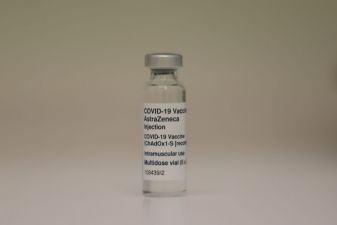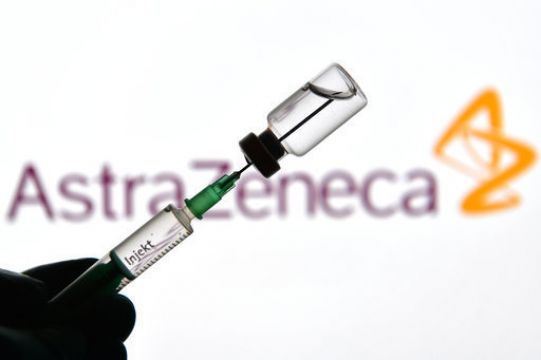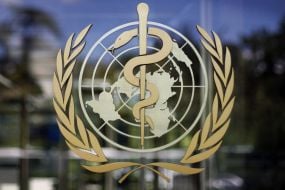Europe's drug regulator has found a possible link between AstraZeneca's Covid-19 vaccine and rare blood clotting issues in adults who have received the shot.
A review by the European Medicines Agency’s (EMA) safety committee concluded on Wednesday that “unusual blood clots with low blood platelets should be listed as very rare side effects” of the Oxford/AstraZeneca vaccine.
The regulator reiterated that the vaccine's advantages outweighed its risks.
"One plausible explanation for the combination of blood clots and low blood platelets is an immune response, leading to a condition similar to one seen sometimes in patients treated with heparin," the EMA said.
It added that most of the cases of blood clots reported have occurred in women under 60 within two weeks of vaccination with the AstraZeneca jab, but that no specific risk factors had been identified based on current evidence.
"The risk of mortality from Covid is much greater than the risk of mortality from these rare side effects," the EMA's executive director Emer Cooke said.
Symptoms
Following a review of all available evidence, the EMA's pharmacovigilance risk assessment committee said the blood clots reported had been found in veins in the brain, the abdomen and arteries, combined with low levels of blood platelets and sometimes bleeding.
The EMA said symptoms associated with the blood clots include shortness of breath, chest pain, swelling in the leg, persistent abdominal pain, severe headaches, blurred vision and tiny blood spots under the skin beyond the area where the injection was administered, and anyone who displayed them should seek medical attention.
The committee carried out an in-depth review of 62 cases of clots in the brain and 24 cases of clots in the abdomen as of March 22nd, with 18 of the combines cases proving fatal.
They came from reporting systems in the European Economic Area and the UK, from around 25 million people who had received the vaccine.
The findings come as a major hurdle in the global fight against the pandemic and a shift in the stance of the regulator, which had last week backed the vaccine and said there was no increased risk of blood clots in general from the shot.
Vaccination plans
EU health ministers have been told the EMA's decision on the safety of the AstraZeneca vaccine is expected to have an immediate impact on vaccination plans and to require a coordinated response, a letter seen by Reuters showed.
The letter was sent by the Portuguese presidency of the EU on Tuesday to invite health ministers to an extraordinary virtual meeting on Wednesday, to be held immediately after the EMA's announcement.
"We expect this announcement will have a direct and immediate impact not only on our national vaccination plans, but also in our citizens' trust in vaccines against Covid-19," the letter says.
"Harmonisation at an EU level will be essential to stop the spread of misinformation," it adds.
Safety concerns have prompted more than a dozen EU countries in recent weeks to suspend use of the vaccine, which has been given to tens of millions of people in Europe, after reports linking it to a brain blood clotting disorder in a few dozen recipients.
UK alternative

Meanwhile, the UK's Medicines and Healthcare products Regulatory Agency (MHRA) said on Wednesday that the benefits of the AstraZeneca vaccine continue to outweigh any risks for most people.
However, due to a very small number of blood clots in younger people, those under the age of 30 will be offered vaccines from Pfizer or Moderna instead.
Scientists are exploring several possibilities that might explain the rare brain blood clots. One theory suggests the vaccine triggers an unusual antibody in some rare cases; other investigators are looking into a possible link with birth control pills.
While many countries have resumed using the shot, some have imposed age restrictions, with younger women perceived to be more vulnerable.







